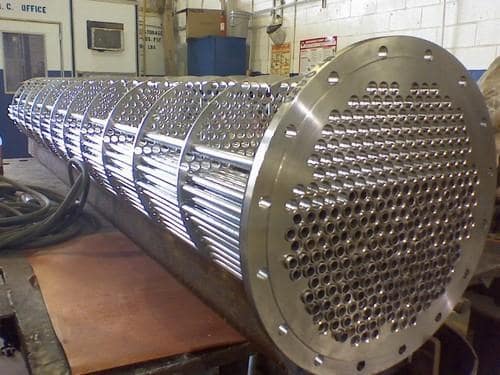Heat exchange occurs inside boilers, so they can be called Heat Exchangers. Boilers are more than just heat exchangers. Is that right? The boiler generates heat through the chemical reaction of fuel and exchanges it for water to produce steam or heated water. Since the boiler exchanges heat for water, it may be called a heat exchanger.
Heat exchangers are just one part of a boiler. Typically, heat is shared/exchanged between two fluids in a heat exchanger. However, in a boiler, the heat is generated from the chemical reaction of the fuel, and is exchanged with the water to produce steam or heated water, depending on the application.
Speaking of Heat Exchangers , specialised Heat Exchangers are utilised in the proper functioning of the Boiler Tube. SA179tube.com Is one leading Manufacturer, Supplier & Stockist Of SAE J524 Seamless & ERW Tubes.

In comparison with the above definition, a Boiler cannot be considered as a Heat Exchanger because the process of Heat generation through chemical reaction is not present in a Heat Exchanger.
What is a heat exchanger?
Imagine you have a gas central heating furnace (boiler) that heats hot-water radiators throughout your home. By burning natural gas, it creates a line or grid of hot gas jets that fire upward over water flowing through a network of pipes. Pumping water through pipes absorbs heat energy and heats up. The gas jets cool down and the water heats up in this arrangement, called a heat exchanger.
SA179tubes.com is a leading supplier, stockist, manufacturer & exporter of SAE J524 Seamless & ERW Tubes . Get in touch with us for the best rates & availability.
